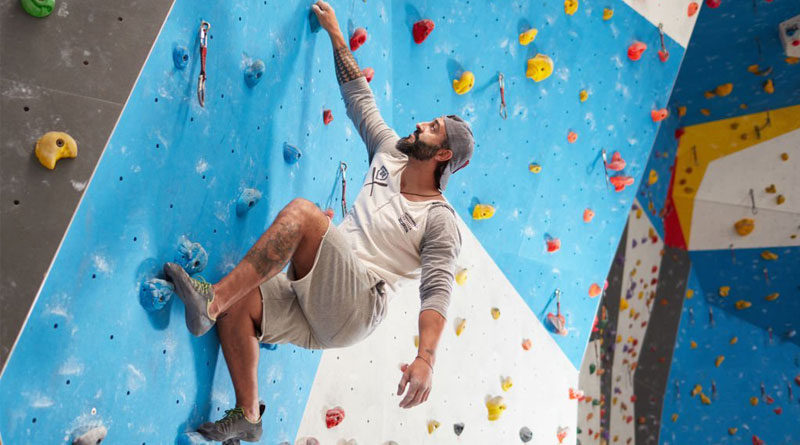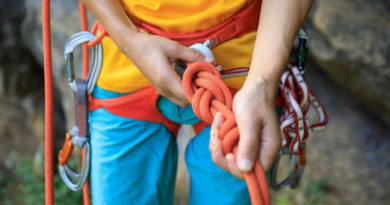Is Indoor Rock Climbing Hard?
Indoor rock climbing can be challenging, especially for those who are new to the sport. The difficulty of climbing depends on various factors, including your physical fitness, strength, and flexibility, as well as your experience and technique. Some routes may be easier and have fewer holds, while others may be more challenging and require more endurance and skill. However, indoor rock climbing is also a very rewarding experience, and with practice and dedication, you can improve your skills and become a more confident climber.
Factors Affecting the Difficulty of Indoor Rock Climbing
The difficulty can be affected by several factors, including:
Physical Fitness, Strength, and Flexibility
Climbing requires a certain level of physical fitness, strength, and flexibility. If you are not in good shape, you may find the sport to be more challenging.
Experience and Technique
Your experience and technique play a significant role in the difficulty of climbing. The more experience you have, the better you will become at identifying and executing the best routes.
Route Difficulty
The difficulty of the route you choose can also affect the overall challenge of climbing. Beginner routes are generally easier and have fewer holds, while more advanced routes may be more physically demanding and require more endurance and skill.
Type of Climbing
Different types of climbing, such as bouldering, top-rope climbing, and lead climbing, can also vary in difficulty. Bouldering is typically less physically demanding but requires more strength and skill, while lead climbing is more physically demanding and requires more endurance.
Equipment
The quality and fit of your equipment, such as ropes, helmets, and gloves can also affect the difficulty of climbing. Poorly fitting shoes or equipment that is worn or damaged can make climbing more challenging and potentially dangerous.
The Benefits of Indoor Rock Climbing
It offers many benefits, both physical and mental, including:
Physical Health
Climbing is an excellent full-body workout that improves cardiovascular fitness, strength, and flexibility. Regular climbing can also help with weight management and injury prevention.
Mental Health
Climbing can be a great stress reliever and can also improve focus, concentration, and problem-solving skills. It can also boost confidence and self-esteem.
Social Aspect
It is often done in a social setting, providing opportunities for social interaction and building camaraderie with other climbers.
Challenging and Rewarding
It is a challenging sport that can be very rewarding. As you progress and improve your skills, you will feel a sense of accomplishment and satisfaction.
Convenient and Accessible
Indoor rock climbing gyms are widely available and offer a convenient and accessible way to enjoy the sport, regardless of the weather or time of day.
Tips for Beginners to Make Indoor Rock Climbing Easier
Here are some tips for beginners to make indoor rock climbing easier:
Start with Easier Routes
When starting out, it is best to begin with easier routes and gradually increase the difficulty as you become more confident and comfortable. This will help build your skills and improve your technique.
Focus on Proper Technique
Good technique is more important than raw strength when it comes to indoor rock climbing. Focus on using your feet and legs to support your body weight, and use your arms for balance and stability.
Use Proper Equipment
Make sure to use proper equipment, including climbing shoes that fit well, a harness, and a chalk bag. This will help make climbing easier and safer.
Take a Class or Work with a Coach
Consider taking a class or working with a coach to learn proper technique, safety practices, and route-finding skills. A coach can also help you identify your strengths and weaknesses and create a personalized training plan.
Warm Up and Stretch
Before climbing, make sure to warm up and stretch your muscles to help prevent injury and improve performance.
Practice Regularly
Regular practice will help you build strength and improve your technique, making it easier and more enjoyable.
Climb with a Partner
Climbing with a partner can be a fun and social experience, and can also help you improve faster as you can learn from each other and offer support and encouragement.
Conclusion
In conclusion, indoor rock climbing can be hard, but it is also a rewarding and enjoyable sport. Climbing difficulty is determined by a number of factors, including physical fitness, experience, technique, and route difficulty. However, you can make it easier and more accessible with proper training, equipment, and technique. Furthermore, indoor rock climbing provides numerous physical and mental benefits, such as improved cardiovascular fitness, increased strength and flexibility, and stress reduction. Finally, it is a great way to stay active, challenge yourself, and have fun, whether you are a beginner or an experienced climber.




